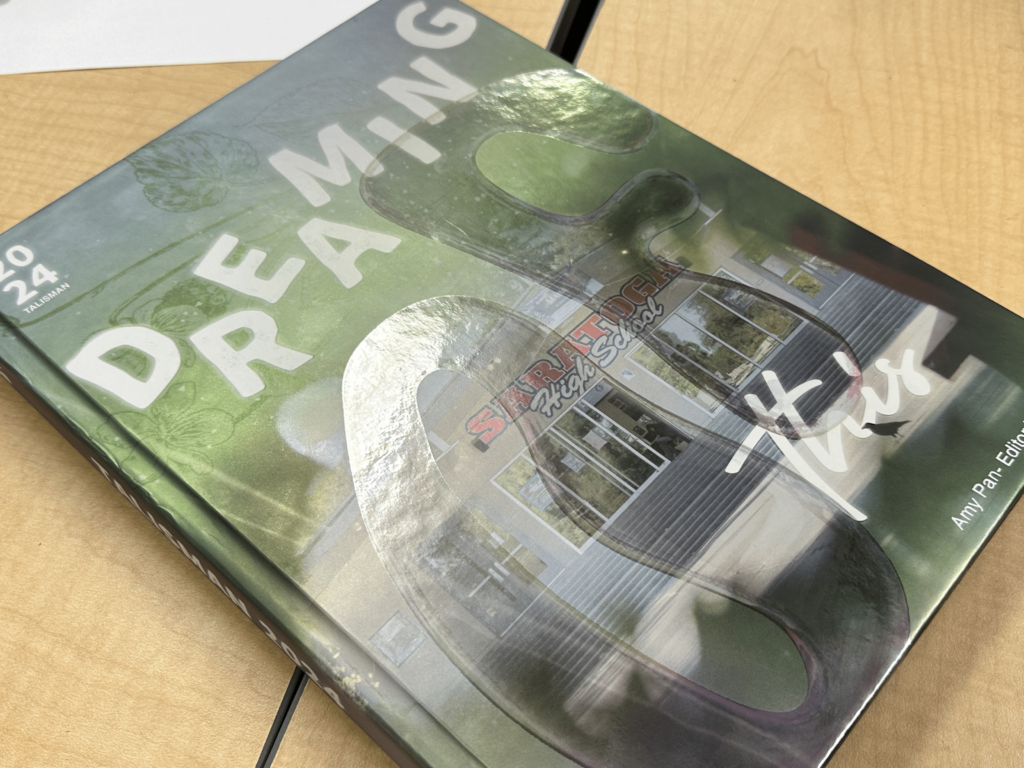Which of the following can improve overall mental performance of students by over 30 percent: a monster, two cups of coffee, consuming massive quantities of food or a quick nap. In a study of NASA pilots, led by sleep expert Dr. Mark Rosekind, research showed that a short, 26-minute nap increases mental performance by 34 percent and alertness by 54 percent for over three hours.
Rosekind’s speech about the importance of sleep for teenagers fascinated 75 students and parents in the Saratoga High library on April 28. The audience learned about how biologically programmed body clocks control sleeping patterns, how “sleep debt” accumulates and the many effects of sleep deprivation. They then learned strategies to prevent the lack of sleep that all SHS students constantly suffer.
“Sleep is like breathing,” said Rosekind. “It’s not optional.”
Chuckles erupted when Rosekind announced that teenagers required nine to ten hours of sleep each night. Most students say they are lucky to get six hours. Even worse is how students don’t get the necessary amount of sleep with early morning classes when they have hard-wired body clocks that want to stay up late and sleep-in. Rosekind said students accumulate “sleep debt” by continually getting less than the needed nine hours of nightly sleep.
“The average student builds up eight and a half hours of sleep debt during one school week, then tries to recover over the weekend,” said Rosekind. “That just doesn’t work.”
In another NASA study, scientists discovered that a subject who was deprived of a few hours of sleep showed a 25 percent decrease in function, equivalent to five or six 12-ounce beers and a blood alcohol level of .095-illegal for driving. Sleep deprivation also showed a 50 percent decrease in judgment and decision-making ability, 20 percent decrease in memory, 100 percent decrease in mood, 25 percent decrease in reaction time, and 100 percent increase in microsleeps—those moments of shut eye that many experience during a boring history video or chemistry lecture more than once every day.
“Everything you are as a human is degraded or impaired when you don’t get enough sleep,” said Rosekind. “You can’t fool mother nature without paying the price.”
In addition to educating the audience, Rosekind also offered some advice on how to give the body the amount of sleep it needs, even when overloaded with homework or other time-consuming activities. Caffeine can be helpful as a last resort, but there’s nothing that cures sleepiness better than sleep itself. Short naps of up to 45 minutes long are the best way to rejuvenate the mind and body when a full night’s sleep isn’t possible. It’s probably not best to have those naps during class though, joked Rosekind.
Students responded well to Rosekind’s speech and took it to heart.
“Very rarely does a student receive a lecture that is extremely relavant to their daily life,” said senior Holden Sparacino. “This was one of them.”
In this generation, people consider it a bragging right to get little amounts of sleep. This scenario is almost completely opposite if the goal is to have a successful society. Albert Einstein, Thomas Edison and Ben Franklin, three of Americas most famous inventors, all slept ten hours every day and were avid nap takers, he said.
He said a common mistake that students often make is thinking that staying up later to study is more important than sleeping. Students don’t remember what they studied the night before if they don’t give their brains enough time to analyze the information during a deep sleep.
“Next time you find yourself cramming for a test late at night,” said Rosekind, “cram a little less and sleep a little more.”


























